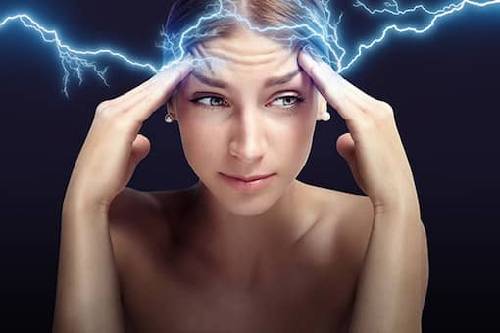What Causes Headache?

Many different things can cause a headache. Some of the most common culprits include stress, muscle tension, and lack of exercise. Rarely can it be caused by an underlying disorder? However, if your headache is persistent or worsens, you should see your doctor rule out any underlying conditions. Headaches can also be categorized into primary and secondary headaches. Primary headaches are caused by stress or lifestyle factors, while secondary headaches are caused by an underlying disorder, such as an injury, infection, or tumor.
Stress
Headaches are a common symptom of stress, but other factors can also cause them. For example, anxiety hormones can trigger headaches. As a result, it's essential to break the link between stress and headaches early on in life. This way, breaking the patterns is easier before they become self-reinforcing and your brain becomes conditioned to respond to pain.
Hunger
A hunger headache occurs when the blood sugar drops to a low level. A headache caused by hunger is often described as a tension headache, although some sufferers may have a migraine instead. Generally, hunger headaches come on gradually and disappear within 30 minutes after a meal.
COVID-19
People who have COVID-19 have a higher chance of developing headaches. Headaches can be debilitating and painful. They can also be a sign of more serious medical conditions. A doctor can determine whether your headaches are caused by COVID-19 or something else.
Medications
Medications for headaches can reduce pain caused by migraine or other types of head pain. Some of the medications that are used for headaches include aspirin, acetaminophen, and caffeine. It is essential to use pain medication early during the onset of the headache, as this helps maximize the effectiveness of the medication and decrease the disability caused by the attack. The first line of medication includes non-opioid analgesics (nonsteroidal anti-inflammatory drugs) and caffeine-containing analgesics (C-Analgesics). Medications for migraine can also include triptans, ergotamines, and dihydroergotamine.
Organic diseases
Many conditions and diseases in humans can cause headaches. Headache is often an early sign of severe organic disease. Disease-induced structural changes in the brain directly cause a few cases, but most are caused by vasodilation of blood vessels in the scalp and neck tissue.
Avoiding triggers
Avoiding triggers for headaches can be helpful for many people. A study by Turner et al. compared the occurrence of a dozen common triggers with the frequency of headache attacks. The researchers also looked at the subjects' stress and mood disturbance levels. The researchers calculated the probability of observing variations in a trigger's prevalence among the participants and the influence of surprise on the frequency of headache attacks.
Treatment options
Treatment options for headaches include many medications that relieve the pain when the condition occurs and prevent headaches from happening in the future. However, some people do not respond to medications alone and may require a combination of several treatments. A qualified healthcare professional can help you determine the cause of your condition and prescribe the best treatment for you.




